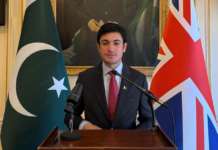 Had carrots been sown in the Middle East, the United States of America would never interfere. It is familiar to every presidential candidate for the White House that their major election campaign circles around the Persian Gulf states. What attracts the USA in the Middle East are interests of Israel and energy resources. For Israeli interests, the USA has left no stone unturned. Whether it is to unarm Iran or maintain the military supremacy of Israel in the Middle East, the USA has done so well. Besides, the two election campaigns’ intermingling highlights the truth that ballots in Israel have less impact on Tal Aviv’s future. Instead, it is the American voters that decide the fate of the Israeli people.
Had carrots been sown in the Middle East, the United States of America would never interfere. It is familiar to every presidential candidate for the White House that their major election campaign circles around the Persian Gulf states. What attracts the USA in the Middle East are interests of Israel and energy resources. For Israeli interests, the USA has left no stone unturned. Whether it is to unarm Iran or maintain the military supremacy of Israel in the Middle East, the USA has done so well. Besides, the two election campaigns’ intermingling highlights the truth that ballots in Israel have less impact on Tal Aviv’s future. Instead, it is the American voters that decide the fate of the Israeli people.
The Kingdom of Saudi Arabia (KSA) speculates that they are the tiger in the Middle East, but they may live in a fool’s paradise. It seems that Israel is the real power in the territory, the watchdog of American interests in the region. Furthermore, the USA backs Israel in normalizing the ties with major powers in the Arab region, like KSA and the United Arab Emirates (UAE). The net of Israeli relations is growing fast day by day. Israel’s status has been changing from non-recognition to de-jure recognition to de-facto recognition by the Arab states.
Although most Arab states are quick to deny any official or underground ties with Israel, they cannot keep the dealings behind the veil with Tel Aviv for too long. Israeli Prime Minister Benjamin Netanyahu himself has gone on the record, revealing that his country maintains unofficial ties with a broad range of Arab states. In other words, Egypt and Israel share a close bonhomie, a cheerful friendliness. In coordination with Egyptian authorities, Israel regularly carries out airstrikes in northern Sinai. Security cooperation notwithstanding, Israel exports natural gas to Egypt after agreeing on a $15 billion deal in 2018. For Jordan, Israel has been no more a nemesis. Israel and Jordan share close ties. Jordan exists as a satellite state for Tal Aviv, while Israel provides water and economic stability for Amman.
Similarly, Morocco’s military signed a deal for three Israeli drones for a total of $48 million, according to Intelligence Online in January 2020. Additionally, The Sudan and Bahrain also cordially recognize and support Israel for political, economic, and strategic activities. Most significantly, the Israel-United Arab Emirates Abraham Accord agreed on August 13, 2020, set the ground for the US and Israeli hegemony in the Persian Gulf. Moreover, this normalization of relations and peaceful diplomacy will bring together two of America’s most reliable and capable regional partners, Israel and UAE. Sooner or later, they are likely to join the US to launch a Strategic Agenda for the Middle East to expand diplomatic, trade, and security cooperation.
The UAE’s surprise move to normalize ties with Israel squeezes Saudi Arabia to follow the footprints of the UAE. Despite the KSA’s claim of being the Muslim Ummah leader and champion of promoting the Palestinian cause, the KSA has no way to escape from recognizing Israel as an independent territory in world politics. “Saudi Arabia will probably eventually follow a similar path, but it will be more hesitant and move slower,” Ayham Kamel, Middle East head at the political-risk advisory firm Eurasia Group, said in a recent note. Riyadh remains with no choice but to surrender to the US demands; otherwise they may lose much of its economic, diplomatic, and military support of the US.
The consequences are enormous; Washington will hasten the Arab-Spring movement to deter Riyadh. It will challenge the KSA’s authoritarian regime, including a lack of freedom of speech and human rights abuse. In the same way, mass protests may take place, demanding political and economic reforms. Furthermore, the USA can reverse the arms deal with the KSA. According to the Stockholm International Peace Research Institute (SIPRI), the United States’ biggest importer of arms in Saudi Arabia from 2015 to 2020. On May 20, 2017, President Trump and Salman bin Abdulaziz signed a pact to purchase components from the United States worth US$110 billion immediately and $350 billion over ten years. The intended purchases include tanks, combat ships, missile defense systems, radar, communication, and cybersecurity technology. The transfer was widely seen as a counterbalance against the influence of Iran in the region.
If Saudi Arabia remains reluctant to the US pressure, the White House could, at least over time, leave Riyadh for Tehran. However, the biggest threat to the bilateral relationship is the thaw in US-Iran relations that would allow Iran to accelerate the nuclear weapons program as previously done in the Obama’s tenure. The move will unsettle the Saudis in the region.
Even after the vehement objections of Saudi Arabia, the USA pulled back its army from Iraq. The influence of Iran will be expanding in the absence of US troops near the border of Saudi Arabia. The dominance of the Islamic Revolutionary Guard Corps, near the Saudi perimeter, will be offing multiple menaces to jeopardize the KSA’s concerns. In addition to this, Pentagon wants Riyadh to dance to their tunes every time or be ready for the repercussions. For example, when the US Defense Department announced, on May 7, 2020, that it would withdraw two Patriot missile batteries and several fighter aircraft from Saudi Arabia, it looked like an ominous development in the tense relationship between Riyadh and Washington. According to the Reuters News Agency, this effort was made to punish the KSA for not ending the oil price war with Russia. What is more, the most extensive US military base in neighboring Qatar, a rival to Saudi Arabia, is also annoying Riyadh.
Saudi Arabia is expected to take a more gradual approach to Israel’s full diplomatic recognition like other Gulf Arab nations such as the UAE, Jordan, Bahrain, and Oman. These nations have persuaded high-level public ties and seriously considered a US proposal for a Middle East peace plan. They are more likely to move closer to Israel; first, officials and analysts say. The White House is tempting Saudi Arabia with a carrot; if not, Riyadh should be ready for the stick.
Aqib Khattak
The writer has done BS English (HONS) from GPGC Karak and is currently a student in International Relations.
Email: [email protected]




Thank you sir, For sharing this piece
Informative writing
Your piece was very revealing. I had never heard the issue presented in that light.
Well done dear fellow. I really appreciate your piece of writing over such an influencing topic.
Thank you sir G ❤️ for sharing information with us.
Wspanialy blog wiele przydatnych informacji zawartych w poszczegolnych postach, Dzieki Ci za to serdeczne, zapraszam takze do siebie…